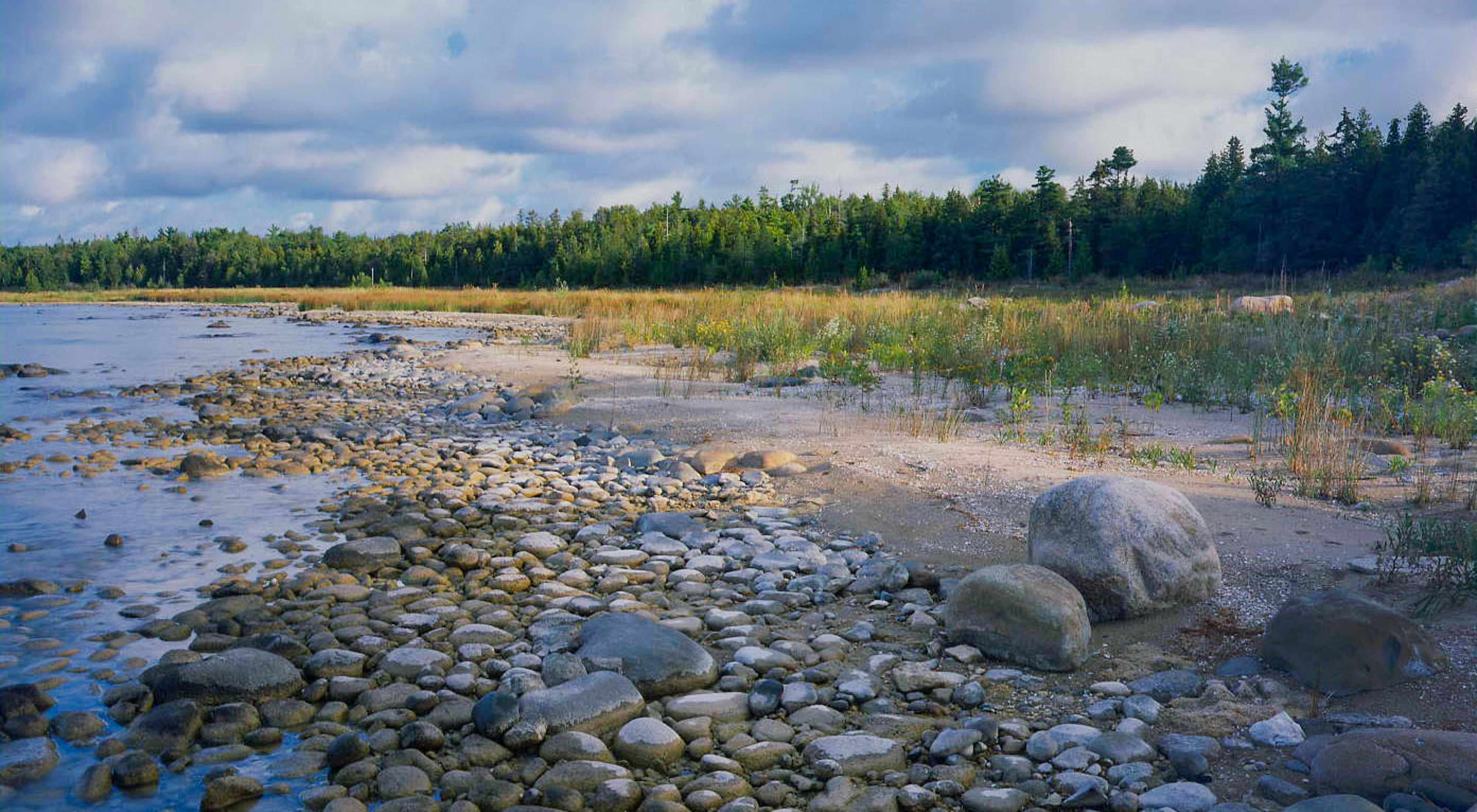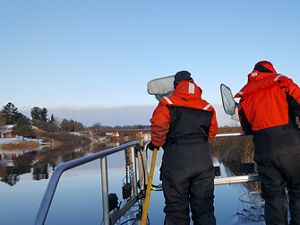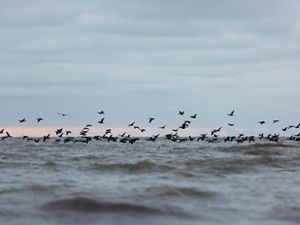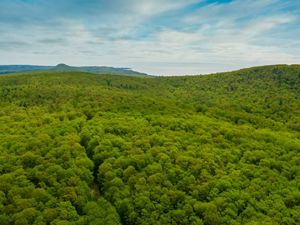The Nature Conservancy Transfers North Point Peninsula to Huron Pines
Local organization takes ownership, management and protection of the property
Media Contacts
-
Ryan Hermes
TNC
Phone: 517-999-7745
Email: ryan.hermes@tnc.org
The Nature Conservancy (TNC) today announced it is transferring its property on North Point Peninsula—one of the most ecologically significant areas in the Great Lakes basin—to Huron Pines. The local nonprofit conservation organization will take over managing and protecting the property, which includes oversight, invasive species control, bird counts and more, beginning Dec. 23. TNC will also hold a conservation easement that strictly limits any future development on the land.
“North Point Peninsula is home to pristine ecosystems unique to Michigan and the Great Lakes. We were proud to protect this land more than four years ago and are even prouder to turn over ownership and management of the property to Huron Pines,” said Helen Taylor, state director for The Nature Conservancy in Michigan. “Huron Pines has been a strong partner in protecting this land, and I look forward to watching our shared vision for North Point take shape so it can be protected for decades to come.”
Quote: Helen Taylor
Huron Pines has been a strong partner in protecting this land, and I look forward to watching our shared vision for North Point take shape so it can be protected for decades to come.
In the early 2000s, North Point Peninsula was identified by TNC as a high-priority area to protect. In 2018, TNC acquired the stunning property on the peninsula, which features 1,384 acres of cedar forests, unique wetlands and meadows that harbor diverse plants and wildlife. Along with its ecological importance, the property comes with a rich maritime history and an abundance of both recreational and educational opportunities.
“North Point Peninsula is a hidden gem in the northeast lower peninsula, and we are thrilled to be taking ownership and assuming management of this unique landscape to ensure it remains a place for nature to thrive,” said Huron Pines Executive Director Brad Jensen. “At Huron Pines, we understand that the connections between land, water and people are what make this corner of Michigan so special, and I want to thank TNC for entrusting us to protect North Point’s ecological values forever.”
Quote: Brad Jensen
“North Point Peninsula is a hidden gem in the northeast lower peninsula, and we are thrilled to be taking ownership and assuming management of this unique landscape to ensure it remains a place for nature to thrive.
TNC scientists have looked at North Point for years because of its diversity. The shaded woods and wildflower-spotted meadows feature the occasional rare find such as dwarf lake iris and Pitcher’s thistle, two threatened native species, while the coastal fen is filled with carnivorous plants. The property includes 200 acres of critical habitat for the Hine’s emerald dragonfly, a species that is federally listed as endangered and at one time believed to be extinct.
There are also four miles of Lake Huron shoreline, which borders a verdant landscape of wetlands and cedar forests. The fertile nearshore waters are a critical spawning area for Great Lakes whitefish and perch and feature underwater limestone sinkholes that support unique microscopic organisms of great interest to the scientific community. Included in the property are more than 200 acres of coastal fen and 700 acres of rich conifer swamp. Another six acres make up a Great Lakes marsh, a wetland type that provides habitat for more than 50 fish species.
North Point Peninsula is also nestled along one of the most significant migratory flyways in the United States, making it an appealing sanctuary for many bird species, including land birds, waterfowl, raptors and shorebirds.
“There is so much worth protecting at North Point, from rare plants and insects to critical fish spawning habitats and stopovers for migratory birds,” Taylor said. “Transferring ownership of this property to Huron Pines is a win for both nature and people.”
The Nature Conservancy is a global conservation organization dedicated to conserving the lands and waters on which all life depends. Guided by science, we create innovative, on-the-ground solutions to our world’s toughest challenges so that nature and people can thrive together. We are tackling climate change, conserving lands, waters and oceans at an unprecedented scale, providing food and water sustainably and helping make cities more sustainable. The Nature Conservancy is working to make a lasting difference around the world in 81 countries and territories (40 by direct conservation impact and 41 through partners) through a collaborative approach that engages local communities, governments, the private sector, and other partners. To learn more, visit nature.org or follow @nature_press on X.



